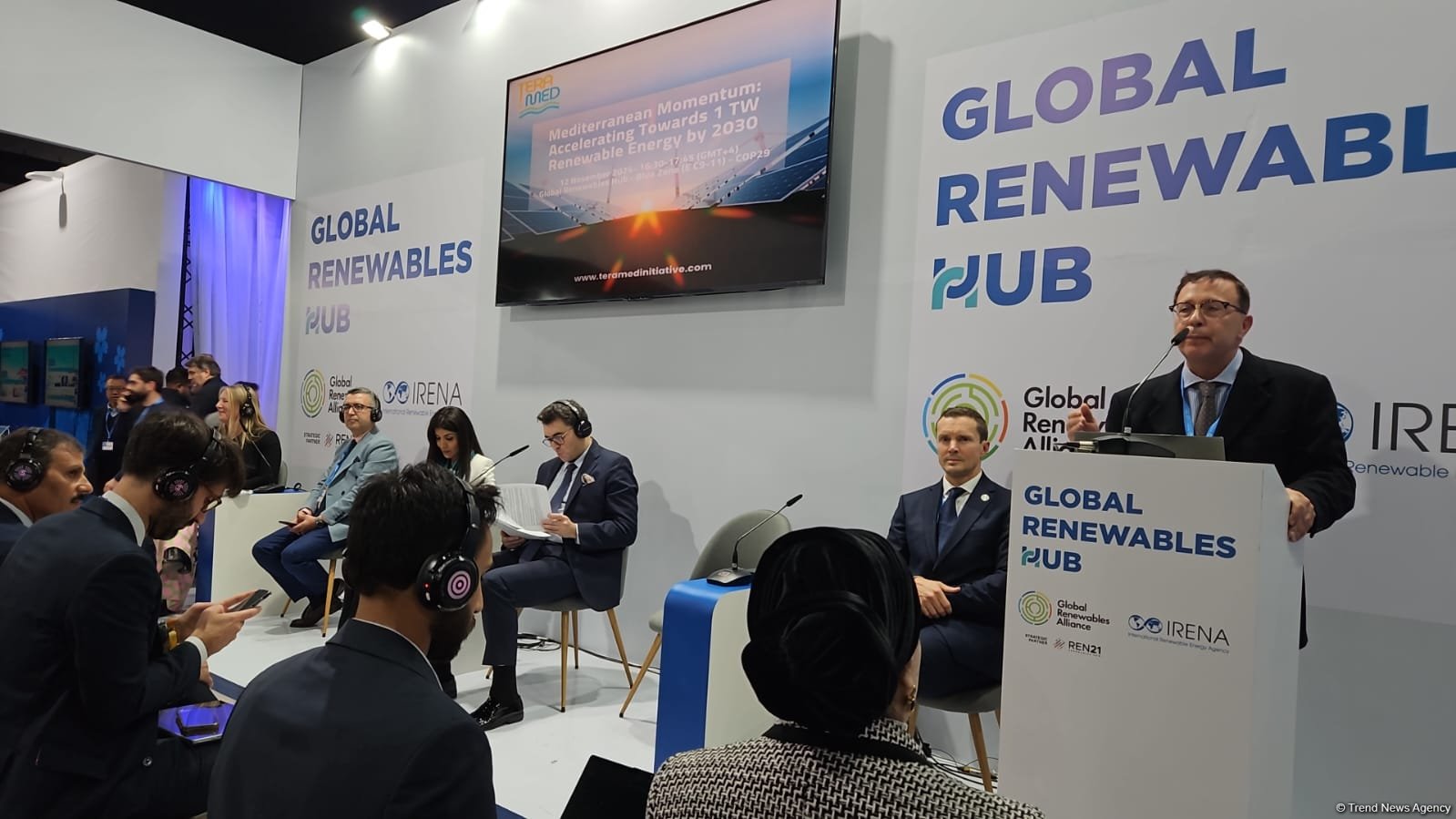BAKU, Azerbaijan, November 12. A panel discussion titled “Powering the Future: The Mediterranean’s Initiative Toward 1TW Renewable Energy by 2030” is taking place as part of COP29 in Baku, Trend reports.
Azerbaijan's Deputy Energy Minister Orkhan Zeynalov has stated that an intergovernmental agreement between Azerbaijan, Uzbekistan, and Kazakhstan will be signed tomorrow to implement the green corridor project.
“I believe that Central Asia has huge potential. We are also talking about the need to link the corridors while harmonizing and bringing them to a common structure in terms of feasibility studies, as well as approaches to the different stages of their development. In general, we are talking about harmonizing the development of green corridors around the world,” he said.
Zeynalov also noted that the 1TW target is a really impressive number and an excellent aspiration.
Senior Deputy Secretary General of the Union for the Mediterranean (UfM) Grammenos Mastrojeni said if decarbonization is not carried out in the Mediterranean, there will be several consequences.
“The Mediterranean is the second fastest warming region in the world with projected consequences that are, frankly, frightening. In a few years, 250 million people will find themselves in water scarcity,” Mastrojeni said.
According to him, renewable energy is not just about decarbonization. Nature has distributed the potential evenly. Those with “no sun” are rich in wind power, for example. But, for example, uranium or other resources hidden deep underground are available to only a few.
"Therefore, renewable energy is sovereignty. Renewable energy is jobs. But in the case of the Mediterranean, it is also the largest unification of the human community. Renewable energy is peace. We are in the midst of major negotiations on the integration of the South and North Coasts as part of the green transition. The European Union is committed to decarbonization, and this cannot happen without the contribution of Southern potential. And the potential of southern countries cannot be developed only based on local markets,” he added.
Meanwhile, co-chair of the Mediterranean Clean Energy Network, Jauad El Kharraz, a senior fellow at think tank ECCO, stated that the Mediterranean is ready to take on the ambitious goal of achieving 1TW of renewable energy by 2030, which would significantly contribute to global targets.
“In every crisis lies a unique opportunity - a chance to embrace
a new era of clean and sustainable energy. At COP28, as you know,
more than 130 countries committed to tripling renewable energy
capacity to 11 terawatts,” he said.
He pointed out that immediately afterward, regional organizations,
industrial companies, think tanks and civil societies on both sides
of the Mediterranean Sea came together to translate this aspiration
into a concrete regional effort called Teramed.







